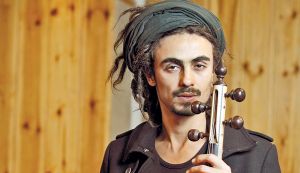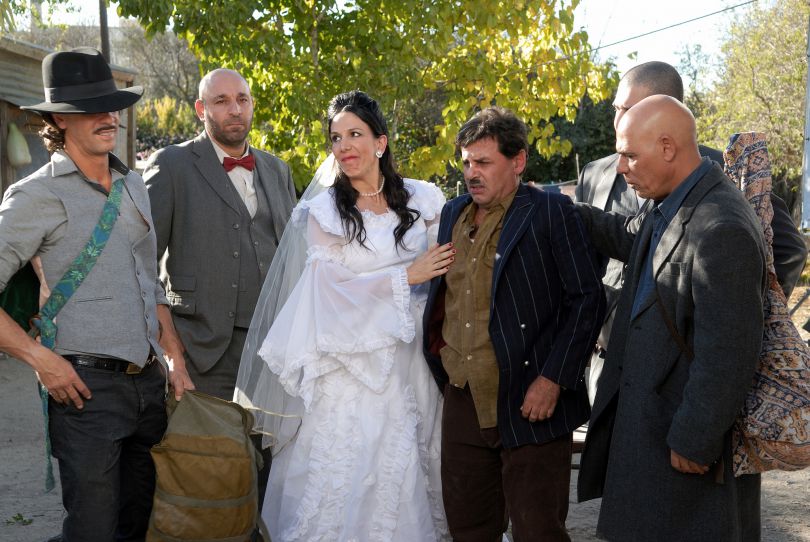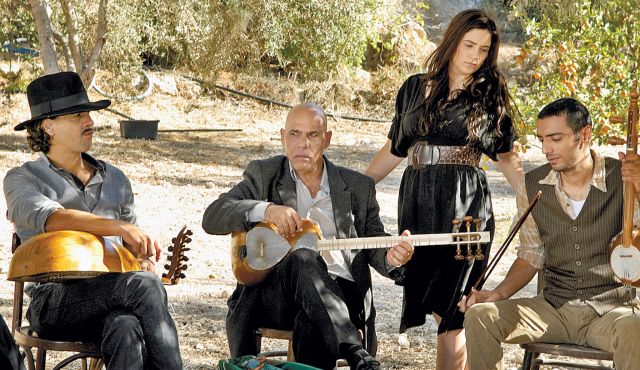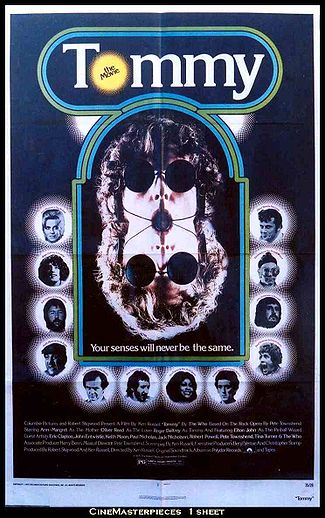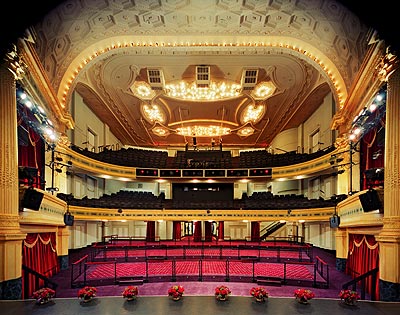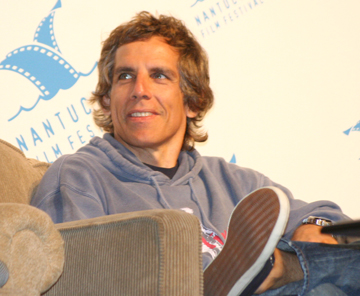|
|
||
|
Pro Tools
FILMFESTIVALS | 24/7 world wide coverageWelcome ! Enjoy the best of both worlds: Film & Festival News, exploring the best of the film festivals community. Launched in 1995, relentlessly connecting films to festivals, documenting and promoting festivals worldwide. Working on an upgrade soon. For collaboration, editorial contributions, or publicity, please send us an email here. User login |
Composer Mark Eliyahu Muses on "The Ballad of the Weeping Spring"
Where does The Ballad of the Weeping Spring take place? The question hovers over Benny Toraty's Wild East fable, which may unfold in yesteryear's Levant, or perhaps just in fantasyland. Either way, music forms its center. So it's only fitting that Mark Eliyahu's soulful, nostalgic composing uses the "maqam" system of musical modes: "maqam" means "place" in Arabic. In the Eastern classical tradition, modal scales are used to influence one's spiritual state. Ottoman-esque scenery aside, Ballad transpires in the realm of Oriental melody, with all its hankerings for a return to a spiritual home. Toraty's follow-up to his equally wistful Desperado Square is featured in The Ring Family Wesleyan University Israeli Film Festival (Thursdays, January 29 - March 5, 2015), curated by Adjunct Assistant Professor of Religion and Israel Studies Dalit Katz.* The story opens in an old tavern whose owner, Yosef Tawila (Uri Gavriel), is as hardened as its stone walls. Twenty springs have passed since the tar (Persian lute) legend crashed a car maiming or killing several fellow musicians, and he has never played since. Now Amram Mufradi (musician Dudu Tassa), the son of fellow band member Avram (Arnon Tzadok), drops in to inform him that Mufradi senior is gravely ill. Mufradi fils dangles the sheet music to “The Weeping Springtime Symphony,” a collaboration of his father and Tawila's that they pledged to perform at the end of each band member's life. Tawila decides to assemble the finest musicians in the land to honor his promise to his dying friend -- and possibly revive his own spirit in the process. Tawila's estranged daughter Tamara (singer Adar Gold) plays a role in that awakening. By turns heart-tugging and tongue-in-cheek, Ballad is an homage to Akira Kurosawa's Seven Samurai and John Sturges' Western-styled knock-off, The Magnificent Seven. Only the quest here is cultural, and the weapons to achieve it are musical instruments. Sounding a bang from the Old East, the filmmakers are staging a showdown of their own here. Both for Toraty, whose parents fled Iran with little more than a kamanche (stringed instrument) and who grew up in a predominantly Sephardic slum near Tel Aviv, and for composer-arranger-music producer Eliyahu, who came to Israel from Dagestan in 1988, the conquest of public desire for such Oriental stylings is a civilizing mission. There was a time not that long ago when all things Ashkenazi dominated the culture of Israel, and non-Western voices were judged the bad and the ugly.
"No one knew what a kamanche was, and certainly not a saz or a tar," Eliyahu recently told me from his home in Tel Aviv. "There wasn't much of an audience for this music." Eliyahu himself has been highly influential in effecting change. As a leading artist in Israel's ethnic fusion scene -- the 30-something is a master player of the kamanche and saz, among other stringed instruments from Persia, Turkey and elsewhere along the Silk Road -- he has taught and inspired some of today's hottest acts. "Now there are are a lot of kamanche, tar and saz players and a lot of students who are studying with us," he said. Eliyahu was born into music. His father, Piris Eliyaho, is an accomplished composer, and his mother is a pianist. They backed his decision at age 16 to study music in Greece for a half a year, followed by a two-year apprenticeship in Azerbaijan and subsequent stints in Turkey and Holland. Since returning to Israel, Eliyahu has straddled his father's world of traditional ensembles as well as the contemporary Israeli music scene, where he has created music for such stars as Rita and Idan Raichel.
His ease with both vintage and current genres shows in his work for Ballad. Its neo-ancient vibe perfects a hybrid that has yet to be pegged by name but that is pushing the frontier of Mizrahi music. Read on for Eliyahu's take on this trend and on the original score that earned him a 2012 Israeli Academy Award and Jerusalem Film Festival medal. Q: What did the director tell you he was going for? Q: How did the two scores differ? ME: What I did the first time around is more acoustical music, something ancient and timeless. After the movie was ready, I made the the score sound newer and more atmospheric, using electric instruments and making it not so dominant. Using a synthesizer was more my call. Benny tried to make it more Eastern. Q: Given the influence of The Magnificent Seven on this film, did you listen to the scores of any Westerns? ME: I grew up on Westerns. I thought about the American Wild West in the scene of the bride whose groom leaves her at the altar. This is where you hear "The Vengeance Tune." I thought about the vibe of Texas and the American desert that you see in spaghetti Westerns. I started with electric guitar, drum and base, but I tried to do it more in the vein of an Eastern. Benny didn't want any piano or violin -- no Western classical elements at all. Q: In most films music advances the narrative, but here the narrative advances the music. Do the stations along the way correspond to different maqams? ME: Yes, and each maqam was essential for creating the atmosphere. There are 12 maqams or windows, and we used four or five in this movie. The ballad is on a maqam that's called Nava. It's the maqam of Creation, of the Spring, something new. That's why I picked this one and not Shushtar, which is a maqam that's usually played at funerals. I didn't find it to be the right scale for the ballad. Q: Is this why the title references "Weeping Spring" and not "Weeping Fall" or "Weeping Winter," seasons that are more commonly associated with melancholy? ME: Exactly. The ballad is a kind of requiem, yet you feel that there's a new beginning, a regeneration, something hopeful that's coming from it.  Q: Did you use the Hijaz maqam in the film? ME: I used Hijaz in the scene where Tawila decides to take up his instrument again and to go on this journey. He shaves his beard and looks at himself in the mirror. It's a very philosophical moment, so I picked the Hijaz maqam for it. Hijaz is a very deep and philosophical scale. It's a little sad, but it's also very mature and wise. With this scale you can look very far, like the Hijaz Mountains of Saudi Arabia, which is where the scale came from. It's about expanses. Q: When we first meet Tamara, we see the face of her oud before we see her own face. What maqam did you pair with this loving salute to music? ME: Amram meets Tamara when we do; he hears her playing the oud outside. I picked the scale called Mahur. I find something very young and female about it, like a girl on a swing, something very pure. In Farsi, "ma" means "sun," and "hur" means "freedom." Q: How appropriate, considering that Tamara helps brighten and liberate Tawila's spirit. And what maqam did you chose for the moment when the blind musician Simon the Bat is given a flute and someone says, "When you play it my soul reaches the sky"? ME: There I used Bayat. In Farsi it means "melody." Bayat maqam is very emotional. It's like the maqam of the belly. It talks about exaltation, crying to God, passionate love, crazy emotion. Benny created the movie with a lot of space for music to talk and convey emotion. There's not a lot of text in this movie; there's a lot of subtext, a lot of facial expressions.
Q: How did you use the frequencies of the maqam to influence the spiritual state of the audience? ME: I think the maqam used me. I felt very powerful things while doing the music for this movie, sometimes too strong. Also it was a long journey. Usually you have a few weeks or months to do music for a movie. But with this movie it was a trip of nearly two years. So it was a period of my life. During this time, we had a break between the time we shot the movie and the editing, and then the movie came back to me again after a year and a half. I had a new way of looking at it. Each time I took a scene and lived it. I took it very deep inside my life. I felt it. I gave each composition a lot of time. It came out of me. I went with my emotions more than by thinking. It wasn't, "This scale is for this, that scale is for this." I was more feeling things. Q: That's right in sync with the maqam tradition, which is allegedly not about reading the notes, but about getting inspired through singing and playing music. Speaking of which, can you tell us about the "secret of the trill" (sodot ha-mawal) that Tamara has learned from her mother (played by the singer Ishtar Alabina)? ME: The singing of the maqam is called "mawal." The playing of the maqam is called "taksim." Otherwise put, taksim is the instrumental improvisation within a maqam, and mawal is sung improvisation. That's the trill. "Taksim" is an Arabic musical term for when a musician is improvising or swimming inside a scale. He's not playing a composition; he's expressing his feelings. Q: It's like a raga. ME: Yes, and to improvise properly within the maqam you should have a few secrets. These are very emotional melodies. It's very hard to explain it. Each maqam has been passed down from father to son, teacher to student, for thousands of years. Some say maqams were used in the First Temple. They were built by geniuses -- astronomers, philosophers, doctors, mathematicians -- who calculated the vibrations of the notes according to their frequencies and the rules of nature and the cosmos. Q: Who gets to be privy to these secret formulas? ME: They're tools of healing and worship known only to an esoteric few, as in Kabbalah. Not everyone can just pick it up like at an academy. You'd get it from a special master or guru who would memorize the secret octaves and teach you. In Iran, traditionally, only one musician got to learn the secret maqams among hundreds of contenders. The maqams were used not just for religious matters, but also in the royal court. Q: What's an example of how maqams were used spiritually? ME: Let's say someone was doing a ritual sacrifice; it wasn't enough for him to bring a cow or some coins. The priests would play a specific formula to bring him to a spiritual rebirth or redemption. The person would burst into tears and only then would the priest feel he was able to proceed with the sacrifice and be "repaired." So the maqam is something very deep that you feel in your soul. Q: You yourself have an onscreen role as a very sensitive musician. Why does your character, Darwish, initially resist joining the ensemble and insist on going solo? ME: I think he is some kind of monk, someone who left everything behind. He loves to be by himself and doesn't want to play with all the ego stuff that you sometimes have between musicians: who is better? Who is more of a man? No ego! He decides that he only wants to play music for God. And then he sees the people who invite him to play this composition with them. In the beginning he says no. But then he feels connected to these people and to their composition and vision. He decides to go out of his cave and to be with the people on the outside. Q: Coming to Israel as a young boy, did you feel like a bit of an outsider yourself, and did it help that Mizrahi music was starting to gain in popularity? ME: I don't know because even today I don't feel connected to the Mizrahi music scene in Israel. I'm doing new Israeli music that we don't yet have a title for. It's not World Music, which is different. I started with the Eastern instruments and music when I was about 15 years old. This music is so close to the heart of so many people in Israel. It reminds them of something of the Jewish people, the people of Israel. It reminds them of the ancient Temple, of the ancient music of Israel. We aren't playing Turkish or Iranian or Arabic music here; we're playing our own music that we're creating right now. We're creating our culture from the beginning. We were the Jews from the Diaspora who were dreaming about Israel. The essence of the Jewish nation is about yearning to go back to Israel -- this is basically what the philosophy and traditions of Judaism are based on. We came back and we're creating our culture. Now we're performing and we have full houses. So this music has developed hugely in Israel. Q: In the movie, the night club chanteuse (played by the Israeli recording artist Dikla) sings a number called "Yearning." Are these the yearnings she's singing about? Q: And here I thought she was just pining over a love affair or some garden variety nostalgia! ME: It's thought that maqams dating back to the first Temple were handed down from master to pupil across the generations. I learned the maqam system from my teacher in Azerbaijan. It's a kind of a musical Bible that you get as oral history. That's how my teacher got it from his teacher. In Persia and Azerbaijan, Islam forbade music for about 400 years. The Muslims didn't play music at all. Only the Jews were playing music. The Israeli Temple was part of this ancient Persian Empire and tradition. A lot of these scales were developed in the Temple, though all the maqams are originally from ancient Persia. They developed there but they're common to all the Eastern traditions -- the Persians, Arabs, Muslims, Jews, Turks, Central Asians, North Africans, Greeks -- we have the same maqams. We're almost the same people. * * For full disclosure, I am the guest speaker at this screening.
20.02.2015 | Laura Blum's blog Cat. : Adar Gold Benny Toray composer Dikla Dudu Tassa Ishtar Israeli film maqam Mark Eliyahu Middle Eastern music Oriental music The Ballad of the Weeping Spring Uri Gavriel Independent
|
LinksThe Bulletin Board > The Bulletin Board Blog Following News Interview with IFTA Chairman (AFM)
Interview with Cannes Marche du Film Director
Filmfestivals.com dailies live coverage from > Live from India
Useful links for the indies: > Big files transfer
+ SUBSCRIBE to the weekly Newsletter Deals+ Special offers and discounts from filmfestivals.com Selected fun offers
> Bonus Casino
User imagesAbout Laura BlumThe EditorUser contributions |



















